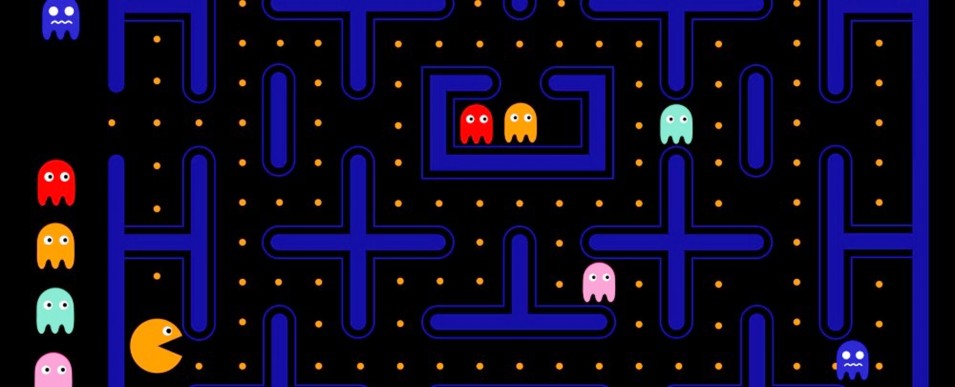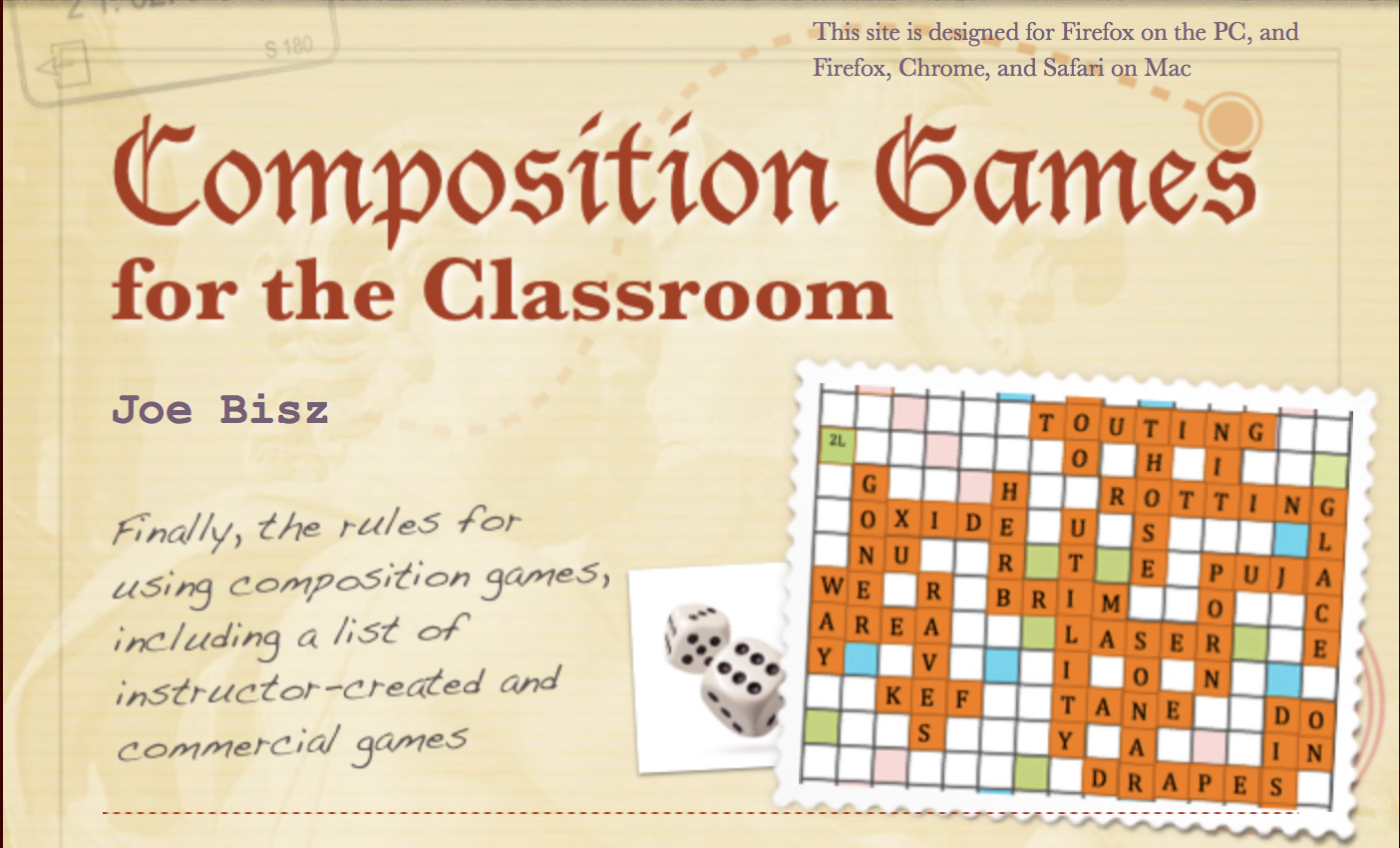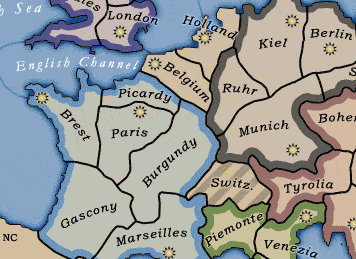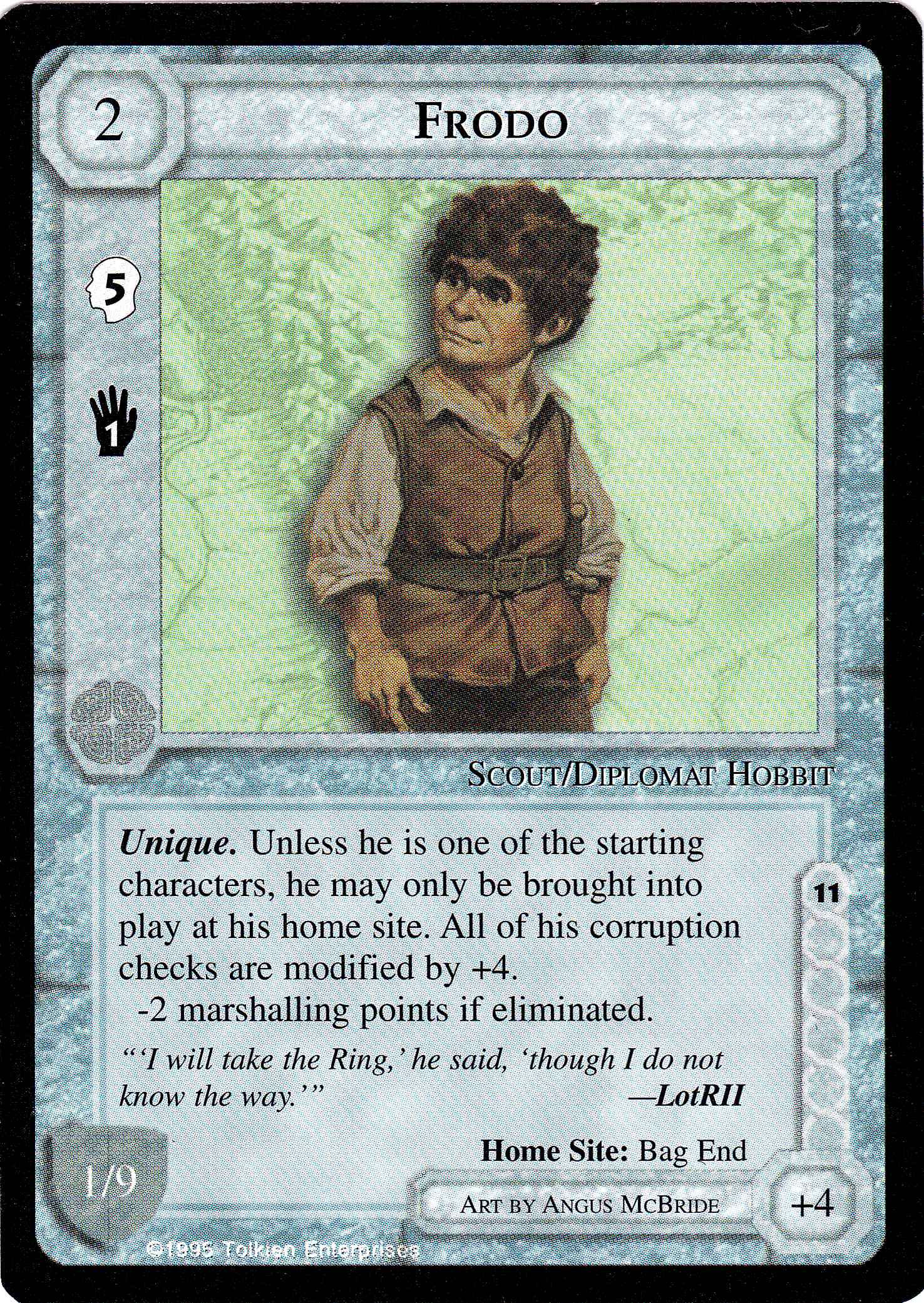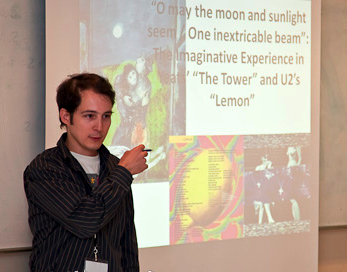This is a small selection of writings by me (or about me) that I believe are the most interesting. I also just published a book with Teachers College Press called "The Educator's Guide to Designing Games and Creative Active-learning Exercises: The Allure of Play"; check it out here!
If you’re a teacher looking for a good understanding of the principles of game-based learning, including ways you can turn your lessons into games, scroll down to my seminal article “Composition Games in the Classroom.”
JOE IN THE NEWS
PUBLICATIONS AND RESEARCH
Composition Games for the Classroom
Published in Computers and Composition Online, Spring 2012.
Teachers should be able to design their own simple, non-digital games! This easy-to-read, highly visual web essay offers a summary of the core principles of game-based learning (Gee and Prensky), followed by a list of commercially available games for composition classes, then Joe’s original classification system for designing educational games called “Complex Mechanics.” Although the example games are for writing classes, the theories he describes are interdisciplinary. Read about the essentials of educational game design in one essay. (Teachers from all fields have told him that they appreciate his system because it provides them with a method for using their existing lessons.)
Reading Note: On some pages, the "NEXT" hyperlink button may appear to not work. Just refresh your browser page, and then it should be fine.
The idea is simple: take the Diplomacy World War I board game—a game of pure persuasion and rhetoric—and use it to help emerging writers learn the art of thesis-driven writing. Contains reflections on our successes and failures, as well as two semesters of sample exercises and videos. (Co-authored with Carlos Hernandez.)
(or http://dx.doi.org/10.3983/twc.2009.0090)
Published in Transformative Works and Cultures, no. 2, 2009.
Once the publisher Iron Crown Enterprises lost their license to the Middle-earth Collectible Card Game (MECCG), the fan player community stepped forward, and kept the game running unofficially. This lead to greater fan design of the components of the game, a more casual playing environment, and the “death of the win.” Includes a brief history of collectible card games and the great appeal of J.R.R. Tolkien’s world. Also, philosophical ruminations on the purpose of a competitive playing environment in general.
Yeats, U2 and Imaginative Experience
Published in Kritikos: an international and interdisciplinary journal of postmodern cultural sound, text and image Vol. 7 (September-October 2010)
“O may the moon and sunlight seem/ One inextricable beam.” A close reading of Yeats’ poem “The Tower” and U2’s song “Lemon,” that shows a similar mythology of symbols between Irish poet Yeats and Irish singer Bono (such as the imagination, the female, the sun and the moon).


